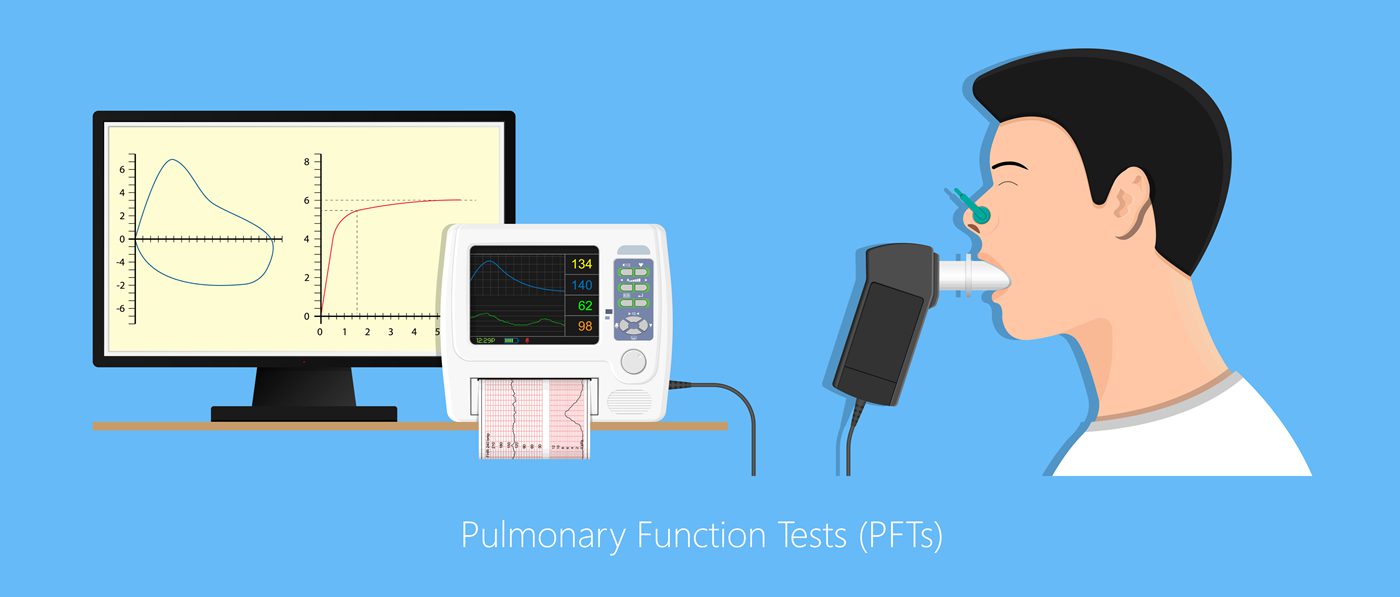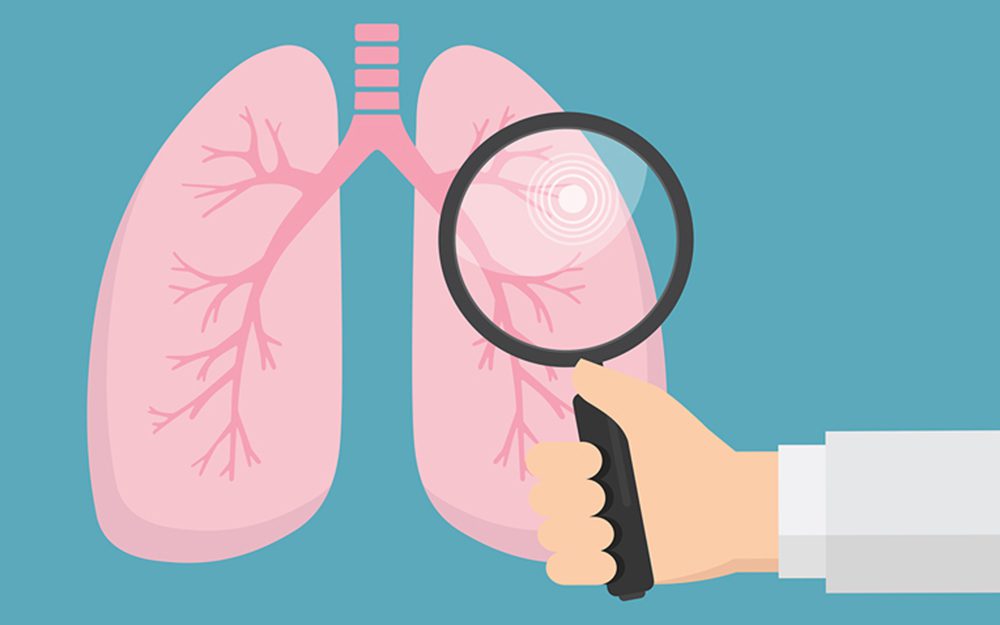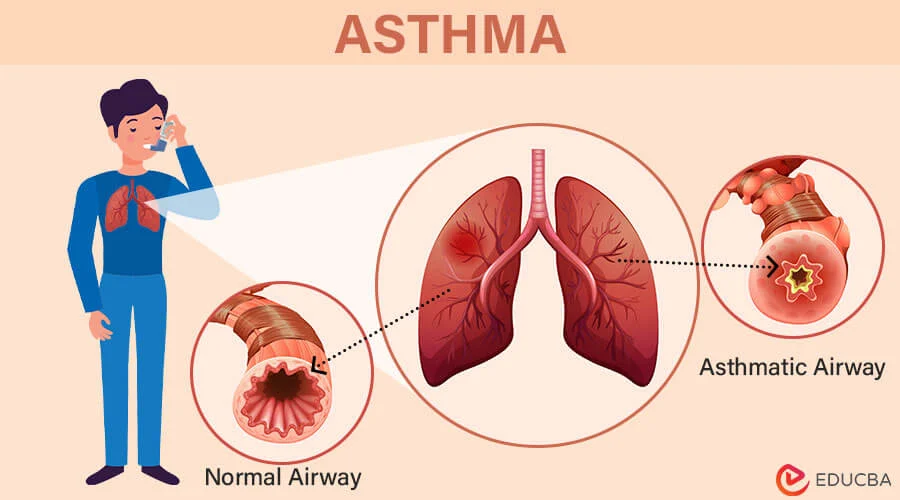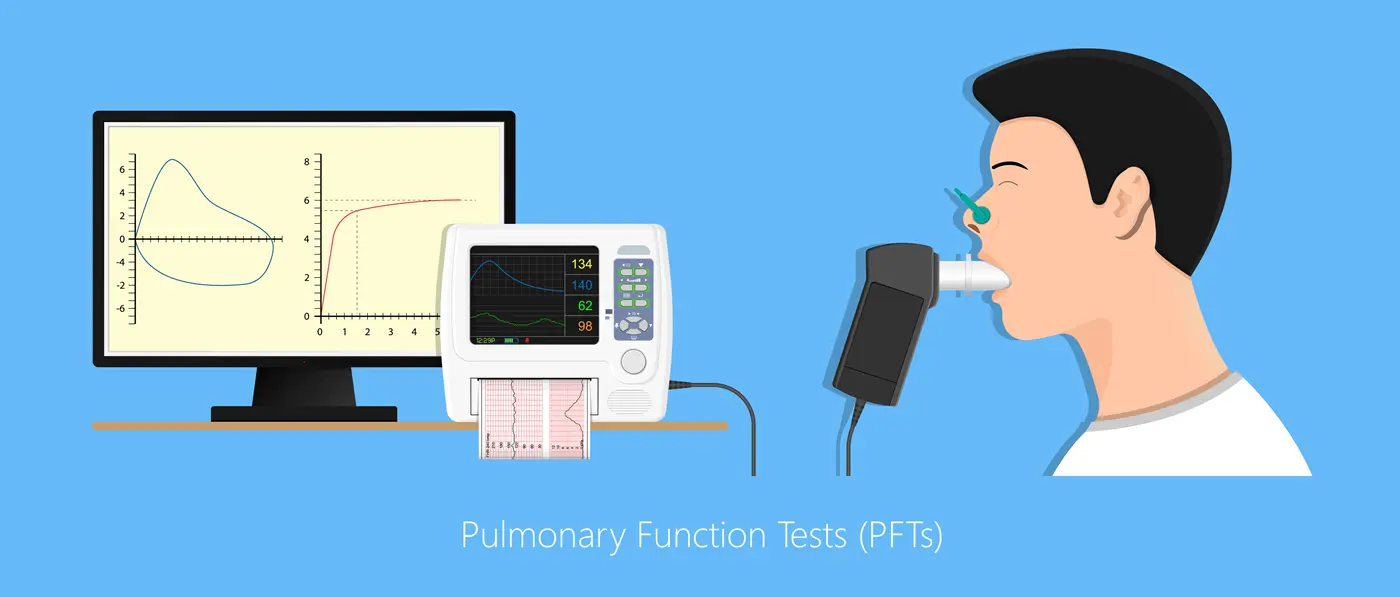Pulmonary Medicine
Expert Care for Your Lung Health
Auria Medical Clinics offers specialized pulmonary care to diagnose, treat, and manage a wide range of lung and respiratory conditions. With our state-of-the-art diagnostic tools and personalized treatments, you can breathe easier and live better.
Pulmonary Services
Our comprehensive services include:


Lung Cancer Screening
If you are between the ages 50 and 80 and have been smoking tobacco at least one pack a day for at least 20 years, BOOK an appointment today to be checked for lung cancer and COPD.
Lung cancer screening using low-dose computed tomography (LDCT) is an essential tool for early detection of lung cancer in high-risk individuals. Here's what you need to know:
Indication and Eligibility
Lung cancer screening is recommended for adults who meet the following criteria:
Screening Effectiveness
False Positive Rate
The false positive rate for lung cancer screening varies:
It's important to note that most positive results are false positives. 95% of abnormal LDCT results are false positives.
Impact on Survival Rate
Lung cancer screening has shown significant improvements in long-term survival:
Asthma
Asthma is a chronic respiratory condition characterized by inflammation and narrowing of the airways, leading to breathing difficulties. Common symptoms include wheezing, shortness of breath, chest tightness, and coughing, varying in severity and frequency. These symptoms often worsen during asthma attacks, triggered by allergens, respiratory infections, exercise, cold air, air pollutants, strong emotions, and certain medications. If not correctly managed, asthma can significantly impact daily life, interfering with sleep, work, and other activities.
Several risk factors contribute to the development of asthma, including genetic predisposition, allergic conditions like atopic dermatitis or hay fever, obesity, and exposure to environmental triggers. Early life factors such as premature birth, maternal smoking during pregnancy, and exposure to air pollution can also increase the risk. Treatment options for asthma typically involve a combination of long-term control medications and quick-relief inhalers. Long-term medications, such as inhaled corticosteroids, help reduce airway inflammation, while bronchodilators provide rapid relief during asthma attacks. Additionally, lifestyle modifications like avoiding triggers, maintaining a healthy weight, and getting vaccinated against influenza and pneumonia can help manage asthma symptoms and prevent complications.


COPD Management
If you experience any of the following symptoms, BOOK an appointment today! COPD is the third leading cause of death in the world.
Chronic Obstructive Pulmonary Disease (COPD) is a progressive lung condition characterized by persistent airflow limitation. Common symptoms include shortness of breath, chronic cough (often with mucus), wheezing, and chest tightness. As the disease progresses, patients may experience frequent respiratory infections, swelling in the ankles, legs or feet, and low energy. The primary risk factor for COPD is smoking, but exposure to secondhand smoke, air pollution, and occupational dust or chemicals can also contribute to its development. Other risk factors include a history of childhood respiratory infections, genetic factors (such as alpha-1 antitrypsin deficiency), and advanced age, with COPD most commonly affecting adults over 40 years old.
While there is no cure for COPD, proper management can significantly improve quality of life and slow disease progression. Treatment options include smoking cessation, bronchodilators, inhaled corticosteroids, pulmonary rehabilitation, and, in severe cases, oxygen therapy or lung transplantation. Vaccinations against influenza and pneumococcal infections are also recommended to prevent complications. Without treatment, COPD can lead to severe complications such as respiratory failure, pulmonary hypertension, and cardiovascular issues. The prognosis for untreated COPD varies, but it generally worsens over time. On average, patients with COPD live 5 to 14 years following diagnosis, depending on the disease stage. However, with proper management and early intervention, many people can live for decades after diagnosis, especially those in earlier stages of the disease.
Pulmonary Function Test
A pulmonary function test (PFT) is a non-invasive procedure measuring how well your lungs work. During the test, you'll be asked to breathe into a spirometer, which measures the amount and speed of air you can inhale and exhale. You'll sit upright before the machine and wear nose clips to ensure all air passes through your mouth. You will be guided through various breathing exercises, such as taking deep breaths, exhaling forcefully, or breathing at different rates. These tests may be repeated several times to ensure accuracy. PFTs can help diagnose asthma, chronic obstructive pulmonary disease (COPD), or other lung disorders. The entire process is painless and typically takes about 30 minutes to complete. Your healthcare provider will use the results to assess your lung function, guide treatment decisions, or monitor the progression of existing lung conditions.
To have your PFT done, BOOK your appointment today.

Why Choose Us
Our team of pulmonologists combines years of experience with cutting-edge treatments to provide the best outcomes for your respiratory health.
